معلومات عنا
حقوق الطبع والنشر © 2024 Desertcart Holdings Limited
Desert Online General Trading LLC
Dubai, United Arab Emirates







Salt, Fat, Acid, Heat: Mastering the Elements of Good Cooking


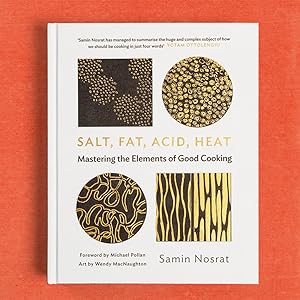

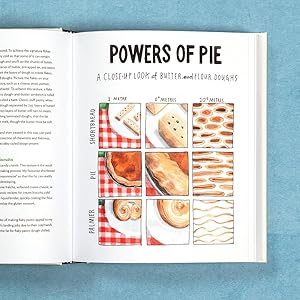

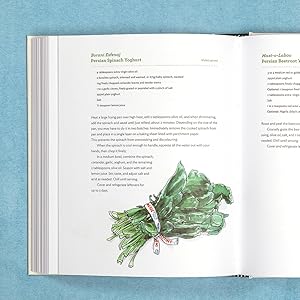
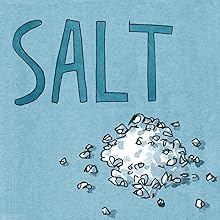
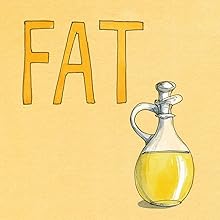
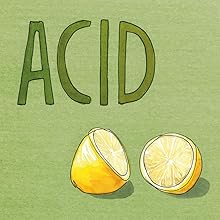
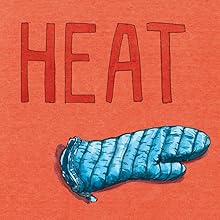
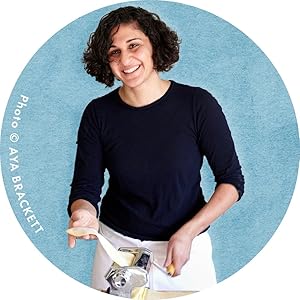
V**Z
A piece of art
This is definitely a 5-star book for me.The way everything is written and explained in the book is simply outstanding. The book takes a very scientific approach to cooking and breaks down the elements of good cooking into four simple categories - Salt, Fat, Acid, and Heat. She then goes on to explain each element in detail and how they work together to create the perfect dish.What I particularly loved about the book was the way the author uses stories, anecdotes, and personal experiences to illustrate some points. The book is filled with beautiful illustrations, diagrams, and photographs that make it easy to follow along and understand the concepts she is explaining.Another great thing about the book is that it is not just a recipe book. It's more like a cooking guide that teaches you the principles of good cooking.In conclusion, I would highly recommend this book to anyone who loves cooking or wants to improve their cooking skills. It's a beautifully written and illustrated book that will inspire you to become a better cook and to have more fun in the kitchen.
P**S
Transformative
This is a book for someone who enjoys proper cooking and wants to improve the flavour and enjoyment of their food. The extravagant praise of other reviewers is well justified, it is excellent and applying its principles has improved my understanding of good cooking more than any other single thing I have read.This is not a cookbook. Yes, 200 of the 470 pages are under the heading "recipes", but they are really worked examples of how to prepare and cook different types of food.The book is best read from end to end, not dipped into. It does not just explain how to develop great flavour and texture in food, but why these techniques work. The author is not frightened to address quite complex scientific issues - cooking is, after all, applied chemistry and physics - and she conveys this understanding in a very accessible and effective way. Without photographs, but with excellent sketches, cartoons and graphics.The writing is a bit gushing and hyperbolic and at times excessively repetitive, with a tendency to state even the blindingly obvious as if it was an Einsteinian revelation. But the enthusiasm is infectious and the constant reinforcement of first principles is helpful.This is not a book with any obvious health or environmental agenda. Those concerned to reduce fat or salt, avoid meat, dairy or gluten or pursue any other particular dietary principles will not see much in direct support of their aims. What the book does do is stress the pleasure of making food using good quality basic ingredients and treating them properly.
F**R
Fantastic
If you want to reach the next level of culinary appreciation you need this book. It shows you how to lift your cooking skills by using the four basic elements of Salt, Acid, Fat and Heat. The chapter on Salt was a revelation to me. So many different types of granules and their different uses. Who knew a simple application of Salt could make your food sing? Far from demonising salt Samin Nosrat explains why we need to use it in our cooking. Also that different ingredients need salting at different times in the cooking process. (If you wondered why people brine their Christmas turkeys the scientific answer lies in this book.) The book continues along this vein using the other three elements The book is split into two parts the first is the first part is the science, the second recipes. This book doesn’t just tell you how to be a great cook it shows you how to be one. Highly recommended for the serious cook.
S**Z
Salt fat acid heat will teach you to think like a pro chef
Generally I find the Amazon ratings guide to be a waste of time, trusting the opinion of a load of nobody’s will hardly substantiate a worthwhile purchase, thus I hardly ever leave a review.Take for example the fact that silver spoon has a higher rating then Claudia Rodens food of Italy and is vastly inferior to the latter particularly in terms of context.This is something akin to a number of phaidon’s backcatalog; 1000’s of recipes in very expensive, big and shiny looking books with little cultural background or thought process behind why, or how.Salt fat acid heat, however is one that deserves 6 stars because it’s teaching you to ‘proverbially fish’ by learning about some of the most important and vital principles in cooking.I have been cooking professionally for the best part of 20 years and I wish I had read this book when I first started out, don’t get me wrong: the journey a chef departs on to learn to think about the principles of cooking can’t be theorised with out practice, but this book will do more then start you off in the right direction;if you apply yourself to it, it will give you a mental compass, and shave a couple of years of your practical experiments and progress I said it was good!If there is one book you need to read on cooking it’s this one, everyone not just pros but all cooks will benefit from the wisdom held within!
S**X
Great gift
Bought as a gift, it arrived quickly and well packaged. The recipient, who enjoys cooking a lot, loved it very much
E**Y
A nice gift for a keen cook
Yeah - some interesting insights.Not life-changing but as I've been cooking near on 55 years, I'm aware of or have absorbed a lot of this insight, knowledge, from simply 'doing'. Nonetheless, it is attractively produced, the approach and the theory is readily 'accessible' (awful hackneyed word !) and the book's a useful and interesting addition to an engaged cook's library.For us who already know the what, and the how, it is mildly interesting to find out the why.But competent experienced cooks will be getting on with the 'doing' with or without this book.
E**N
One of the most interesting and inspiring books about cooking
It's an exciting book. It explains the critical elements of good cooking and gives many good tips to remember in search of a good taste.
ترست بايلوت
منذ شهرين
منذ 5 أيام